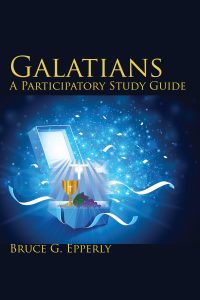Inspiration and Canon
I’m back to thinking about inspiration today. Many people think about the terms “inspired” and “canonical” as nearly synonymous. Generally they are not.
The term “canon” relates to idea of canon law, in other words a book is canonical when canon laws defines it as authoritative. Now the edges have become blurred over the years, and we have many different churches, but in general you will still find a statement in any church’s statement of beliefs that designates certain books of the Bible as canonical. For protestant churches, this is almost always the 66 books that have been accepted as canonical since the protestant reformation. The Roman Catholic Church, various eastern Orthodox churches and some smaller bodies have a different list of books.
The books listed as canonical are generally assumed to be inspired, and thus to carry divine authority. But the act of making certain books canonical does not necessarily make them the only books that are inspired by God. Other works may be inspired. A person may regard other works as authoritative.
This brings up the concept of a “personal canon.” In one sense, that is a contradiction in terms, since “canon” by nature involves a community to which the standard applies, and not an individual. But as used, it simply means those books that a particular individual regards as authoritative in some way. Alternatively, some people use that term to designate the list of those books they regard as inspired. I prefer not to use that second sense, because it reinforces the notion that “canonical” and “inspired” are synonyms.
So how does an organization establish a canon? That would depend on the organization. In the case of early Christianity I would suggest that it was in many ways a contest of popularity, with the proviso that I’m referring to popularity in use as an authority on doctrine or practice. By the time the church councils got together to make authoritative lists, there was really very little wiggle room. By virtue of the earlier victory of what we now call “orthodox” doctrine, and the fact that generally orthodox bishops and officials attended the councils, we get a canon that was acceptable to orthodox churches.
I don’t have a problem with the procedure. In effect, I think that popularity must be a primary consideration. It would be hard to force a community to accept material that they truly did not like as authoritative. But this does relate directly to the idea of inspiration. Very frequently a community later accepts as authoritative someone who was not popular in his own time. Jeremiah is an excellent example. He was persecuted when he spoke, his work was cut up when he wrote, and he ended up forcibly taken to Egypt against his will. But his book later became an authoritative part of scripture.
This leads me to point out almost a contradiction between immediate inspiration and immediate relevance of a message and its acceptance as canonical. Some of the most inspired and challenging statements that have ever been made have been given to communities that really didn’t like them at all. I suspect that in most times the message of a true prophet will not be well received. A message may receive very mixed reception. Gandhi was poorly received by the British occupiers and by those who wanted to turn to violence. Others received his work joyfully. Inherent in the way he inspired people to action was the fact that he angered other people.
My point is that simply asking whether a work is canonical or not is not a very good way to determine its value to your own spiritual life. Most of the material we now have in the Bible and which are regarded by all Christian churches as authoritative, was once poorly received by at least a part of the community. The things that truly correct us and call us to greater action are likely to be frowned upon by those who need them most.
What a defined canon does for us is tell us what defines our community. It does not define the boundaries of what helps us grow spiritually.
(I will discuss inspiration in a later post.)


